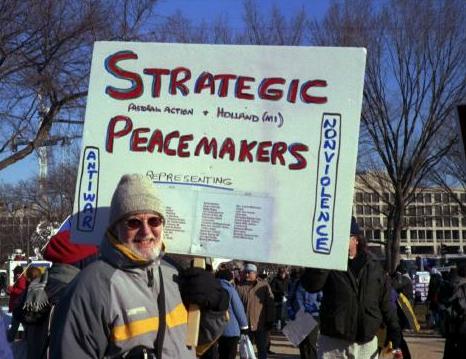
The President of Moldova:
What Will We Do if Russia Attacks Us?
International Security and European Integration of Ukraine
(July 13, 2022) — The President of Moldova, Maia Sandu, emphasized the importance of strengthening the country’s armed forces, explaining this in particular by the possibility of Russia’s aggressive actions.
As “European Truth” reports, Sandu stated this in an interview with Moldova 1 TV channel . “If Russia tries to attack us one day, what are we going to do? We’re going to send an army with hoes on airplanes to defend ourselves. We don’t want to attack anybody, we don’t want anybody to drag us into a war, but that’s the reality, which we have to prepare for,” she said.
The President of Moldova emphasized that she will do everything to ensure peace in the country.
“Let’s maintain peace in the country. We have succeeded so far and, I hope, will succeed in the future. It is true that it does not depend on us. It depends on the resistance of Ukraine, and we must say that Ukraine is very brave,” Sandu said.
Earlier, against the background of the full-scale invasion of the Russian Federation into Ukraine, President Maya Sandu said that the authorities of Moldova did not pay enough attention to the development of the defense sector and now the country does not have the necessary military protection.
The head of state emphasized that Moldova should make every effort to create a professional and modern army. At the same time, the Minister of Defense of Moldova, Anatoliy Nosatiy, has a different position than President Maia Sandu, regarding the combat capability of the Moldovan army.
At the end of June, the Council of the EU approved an aid package within the framework of the European Peace Fund in the amount of 40 million euros for the Armed Forces of the Republic of Moldova.
Create a Nonviolent, Civilian-Based Defense Force
World BEYOND War / A Global Security System: An Alternative to War.
American political scientist and Albert Einstein Institution founder Gene Sharp has combed history to find and record hundreds of methods that have been used successfully to thwart oppression. Civilian-based defense (CBD) indicates defense by civilians (as distinct from military personnel) using civilian means of struggle (as distinct from military and paramilitary means).
This is a policy intended to deter and defeat foreign military invasions, occupations, and internal usurpations.” This defense “is meant to be waged by the population and its institutions on the basis of advance preparation, planning, and training.”
It is a “policy [in which] the whole population and the society’s institutions become the fighting forces. Their weaponry consists of a vast variety of forms of psychological, economic, social, and political resistance and counter-attack. This policy aims to deter attacks and to defend against them by preparations to make the society unrulable by would-be tyrants and aggressors.
The trained population and the society’s institutions would be prepared to deny the attackers their objectives and to make consolidation of political control impossible.
These aims would be achieved by applying massive and selective noncooperation and defiance. In addition, where possible, the defending country would aim to create maximum international problems for the attackers and to subvert the reliability of their troops and functionaries.
The dilemma faced by all societies since the invention of war, namely, to either submit or become a mirror image of the attacking aggressor, is solved by civilian-based defense. Becoming as or more war-like than the aggressor was based on the reality that stopping him requires coercion. Civilian-based defense deploys a powerful coercive force that does not require military action.
In civilian-based defense, all cooperation is withdrawn from the invading power. Nothing works. The lights don’t come on, or the heat, the waste is not picked up, the transit system doesn’t work, courts cease to function, the people don’t obey orders.
This is what happened in the “Kapp Putsch” in Berlin in 1920 when a would-be dictator and his private army tried to take over. The previous government fled, but the citizens of Berlin made governing so impossible that, even with overwhelming military power, the takeover collapsed in weeks. All power does not come from the barrel of a gun.
In some cases, sabotage against government property would be deemed appropriate. When the French Army occupied Germany in the aftermath of World War I, German railway workers disabled engines and tore up tracks to prevent the French from moving troops around to confront large-scale demonstrations. If a French soldier got on a tram, the driver refused to move.
Two core realities support civilian-based defense; first, that all power comes from below — all government is by consent of the governed and that consent can always be withdrawn, causing the collapse of a governing elite.
Second, if a nation is seen as ungovernable, because of a robust civilian-based defense force, there is no reason to try to conquer it. A nation defended by military power can be defeated in war by a superior military power. Countless examples exist.
Examples also exist of peoples rising up and defeating ruthless dictatorial governments through nonviolent struggle, beginning with the liberation from an occupying power in India by Gandhi’s people power movement, continuing with the overthrow of the Marcos regime in the Philippines, the Soviet-backed dictatorships in Eastern Europe, and the Arab Spring, to name only a few of the most notable examples.
In a civilian-based defense, all able adults are trained in methods of resistance. A standing Reserve Corps of millions is organized, making the nation so strong in its independence that no one would think of trying to conquer it.
A CBD system is widely publicized and totally transparent to adversaries. A CBD system would cost a fraction of the amount now spent to fund a military defense system. CBD can provide effective defense within the War System, while it is an essential component of a robust peace system.
